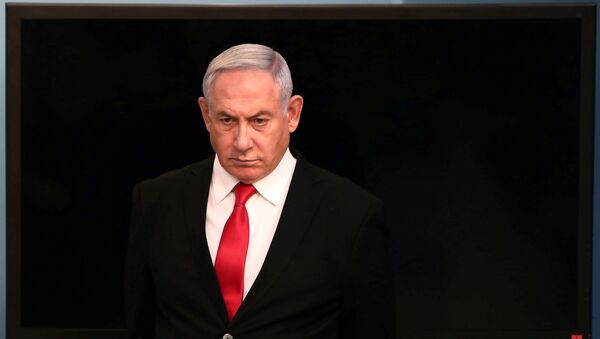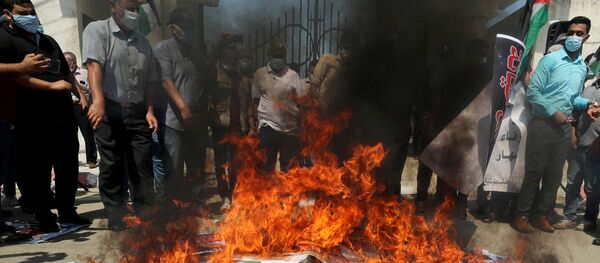Israel has not ruled out a preemptive strike against Iran, Prime Minister Benjamin Netanyahu warned during a memorial service on Tuesday for those who fell in the 1973 Yom Kippur War, an Arab-Israeli military standoff.
"A preemptive strike is a difficult thing to do. I know that if Iran wants to base itself in the north, we are ready to fight them. This is a direct lesson of the Yom Kippur War", noted Netanyahu, asserting that they "will do everything in order to protect the State of Israel; we are not ruling out a preliminary strike".
The prime minister went on to ponder over "the power on our side", saying it is what "brought peace with Jordan, Egypt, agreements with the UAE and Bahrain".
"The power that will bring peace with additional states. The power and perseverance will allow us to handle the coronavirus crisis", Netanyahu went on.
During the memorial, Israeli President Reuven Rivlin warned that the "surprise that was our lot" in the war must in no way be forgotten or repeated in either healthcare or the economy.
"I fought in the killing fields of that terrible war, and here I am today. Almost a jubilee later, and I well remember how we won that war. In the trenches, we fought shoulder to shoulder", stressed Rivlin, further calling to rebuild the contract between the public and its elected representatives, and "reconcile the deep rifts among the people" for the sake of national security.
He welcomed the nation to be paricularly "goal-oriented", stressing emphatically that the goal is "to defeat the virus – to defeat it!"
Defence Minister Benny Gantz noted during the service that the coronavirus caught Israel unprepared, similar to the Yom Kippur War - the so-called October War, fought in 1973 by a coalition of Arab states led by Egypt and Syria against Israel, who ultimately won.
"We didn't respond as was fit, but we will succeed this time as well", Gantz recalled.
Arms Embargo on Iran
In mid-August, the Israeli PM slammed the UN Security Council's decision not to allow an extension of the arms embargo on Iran as "scandalous", adding that Tel Aviv will continue to cooperate closely with its ally the United States to repel what he referred to as "Iranian aggression".
Dian Triansyah Djani, UNSC president as of July, said that the resolution had not received the required number of votes to be adopted, because it was only endorsed by the US and the Dominican Republic and objected to by Russia and China, with as many as 11 countries abstaining.
Natanz Incident
Tensions between the two countries escalated over the past summer after reports emerged in June that Israel was behind a huge explosion at Natanz, Iran, which levelled a key factory producing centrifuges used in the nation's nuclear refinement.
Israeli Defence Minister Benny Gantz hit back when asked about Israel's alleged involvement, noting that "everyone can be suspicious of us all the time. But not every event that happens in Iran is connected to us".
In a continuing exchange of mutual jabs, Tel Aviv claims that Iran seeks to acquire nuclear weapons and sew terrorism across the region to threaten Israel's national security, including through proxy forces operating along its borders.
Tehran, meanwhile, says Israel's illegal military involvement in Syria, Lebanon, Palestinian territories, and Iraq, as well as its possession of an actual nuclear arsenal, make it the greater danger.





